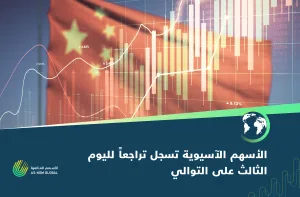How does trading psychology affect traders, and how to control it?
Psychology plays a critical role in shaping a trader's behavior and decision-making process in financial markets. Psychological factors often have a more significant impact than knowledge or trading skills. Repeatedly, traders from diverse national, cultural, and social backgrounds make similar mistakes due to psychological influences. In this article, we will explore the concept of trading psychology, its effects, and its various types, along with appropriate solutions to avoid its negative impacts.
Definition of Psychology:
Psychology refers to the scientific study of human behavior, cognitive processes, and emotions. It focuses on understanding and interpreting the factors that influence human thoughts, feelings, behaviors, and interactions with the surrounding world.
How do emotions affect a trader's psychology?
The influence of emotions on a trader's psychology is a crucial aspect of the trading process. Emotions play a significant role in determining traders' actions, and investment decisions, and it is essential to understand this impact and manage emotions effectively to achieve success in trading:
Fear and Anxiety: Fear and anxiety can lead to making irrational decisions and missing out on profitable investment opportunities. Traders who are fearful may avoid taking necessary risks and miss potential gains. Anxiety can impair a trader's ability to concentrate, leading to impulsive and poorly thought-out decisions.
Greed and Recklessness: Greed and recklessness may push traders to take excessive risks, exceeding their risk tolerance levels. This behavior can increase the chances of experiencing significant losses.
Being Influenced by Market Sentiments: Traders can be heavily influenced by the collective emotions prevailing in the market, such as panic or excessive optimism. Such herd mentality can lead to poorly informed group decisions and amplify price volatility.
Types of Trading Psychology:
Blind Trust Psychology: This psychological state occurs when a trader overly relies on recommendations or advice from others without conducting their own research or due diligence. Blindly following others' recommendations can lead to unfavorable outcomes if the sources are unreliable.
Anchoring Bias: This psychological bias makes individuals rely too heavily on the initial piece of information they receive when processing new information or conducting data analysis. This initial "anchor" can bias their decision-making, preventing a well-balanced evaluation.
Confirmation Bias: Confirmation bias is a tendency to seek information or evidence that confirms one's existing beliefs and ignore contradictory information. This bias can hinder objective and rational analysis of available information.
Loss Aversion: This concept in behavioral economics suggests that humans prefer avoiding losses over acquiring equivalent gains. People tend to feel the pain of losses more intensely than the joy of gains, leading them to avoid taking risks even when the potential rewards are higher.
How to mitigate the impact of trading psychology?
To avoid the negative impact of trading psychology and make more objective decisions, traders can take several steps:
Self-awareness: Develop self-awareness regarding psychological influences and biases that can affect decision-making.
Goal setting: Define clear financial and trading goals to guide decision-making and avoid being swayed by emotions.
Stick to the plan: Commitment to a well-defined trading plan helps protect traders from the impact of trading psychology.
In conclusion, trading psychology is a critical aspect of trading in financial markets, and controlling emotions and understanding their influence is the key to success. When traders are aware of trading psychology and can manage their emotions, they can make informed and objective investment decisions, leading to trading success.



